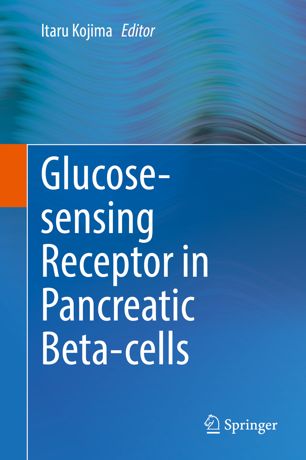Glucose-sensing Receptor in Pancreatic Beta-cells 2019
دانلود کتاب پزشکی گیرنده های حساس به گلوکز در سلول های بتای پانکراس
| نویسنده |
Itaru Kojima |
|---|
| تعداد صفحهها |
71 |
|---|---|
| نوع فایل |
|
| حجم |
1 Mb |
| سال انتشار |
2019 |
89,000 تومان
از دهه 1970، بحثهای زیادی در مورد “گیرنده گلوکز” و “محل بستر” و اینکه کدام یک از این دو نظریه غالب است، وجود داشته است، اما یافتههای جدید در مورد گیرندههای حسگر گلوکز اکنون نور جدیدی را بر روی “گیرنده گلوکز” روشن کرده است. تئوری گیرنده گلوکز.”
/p>
این جلد به بررسی تحولات اخیر در مورد گیرنده های حساس به گلوکز در سلول های بتای پانکراس می پردازد.
تاریخچه تحقیقات در سلول های بتای پانکراس طولانی و پیچیده است؛ بر این اساس، اولین مورد فصلها تاریخچه این رشته را ارائه میکنند و فرضیه مکانیسمهای ترشح انسولین را توضیح میدهند: «نظریه گیرندههای گلوکز». در سلولهای بتای پانکراس، مانند شناسایی، مسیر کانال، سیگنالدهی گیرنده، و نقش فیزیولوژیکی. خوانندگان به درک جامعی از گیرندههای حسگر گلوکز و متابولیسم آنها گلوکز در سلولهای بتای پانکراس، بینشهای جدید در مورد پاتوفیزیولوژی دیابت، و شناسایی اهداف جدید برای درمان دیابت.
Since the 1970s, there has been much discussion about the “glucoreceptor” and “substrate site” and which of these two is the dominant theory, but new findings on the glucose-sensing receptor have now shed new light on the “glucoreceptor theory.”
This volume reviews recent advances concerning the glucose-sensing receptor in pancreatic beta-cells.
The history of research into pancreatic beta-cells is long and complex; accordingly, the first chapters present the history of this field and explain the hypothesis of insulin secretion mechanisms: “glucoreceptor theory”.
Subsequent chapters examine the function and activity of the glucose-sensing receptor in pancreatic beta-cells, such as identification, channel pathway, receptor signal and physiological role. Readers will gain a thorough understanding of the glucose-sensing receptor and glucose metabolism in pancreatic beta-cells, new insights into the pathophysiology of diabetes, and learn about new targets for the treatment of diabetes.




